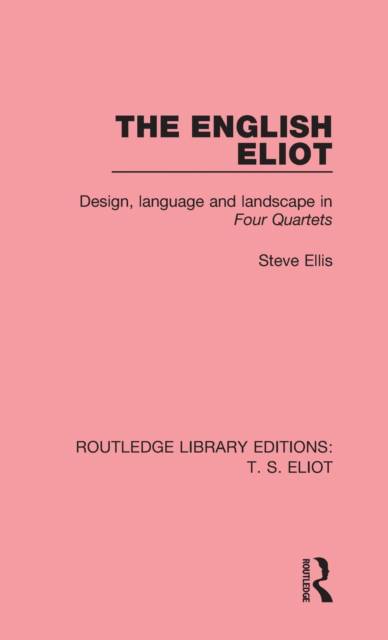
- Afhalen na 1 uur in een winkel met voorraad
- Gratis thuislevering in België
- Ruim aanbod met 7 miljoen producten
- Afhalen na 1 uur in een winkel met voorraad
- Gratis thuislevering in België
- Ruim aanbod met 7 miljoen producten
Omschrijving
This book, first published in 1991, supplies a neglected cultural context for T. S. Eliot's writings of the 1930s and 1940s, particularly Four Quartets, and attempts to disprove the widespread belief in Eliot's unproblematic commitment to England, and the 'Englishness'.
The book traces Eliot's classicism not only in linguistic and formalist terms but also in his construction of England in the Quartets and Quartets-related essays. His practice is related to the vigorous polemic concerning the definition of England found in the 1930s and 1940s, in material as diverse as landscape painting, advertising, travel literature and the detective novel.
This original and provocative text will not only be of interest to students and teachers of Eliot, but to those interested in representations of nationality.
Specificaties
Betrokkenen
- Auteur(s):
- Uitgeverij:
Inhoud
- Aantal bladzijden:
- 216
- Taal:
- Engels
- Reeks:
Eigenschappen
- Productcode (EAN):
- 9781138999404
- Verschijningsdatum:
- 4/12/2015
- Uitvoering:
- Hardcover
- Formaat:
- Genaaid
- Afmetingen:
- 140 mm x 216 mm
- Gewicht:
- 399 g

Alleen bij Standaard Boekhandel
Beoordelingen
We publiceren alleen reviews die voldoen aan de voorwaarden voor reviews. Bekijk onze voorwaarden voor reviews.












